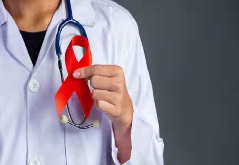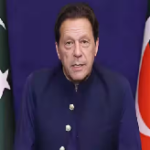While over 2.5 million people are living with HIV in India, the country has made notable progress, and outperformed the global reduction rate, said the Ministry of Health and Family Welfare on Saturday, ahead of World AIDS Day.
World AIDS Day has been observed annually on December 1 since 1988, to raise awareness about HIV (Human Immunodeficiency Virus) /AIDS (Acquired Immune Deficiency Syndrome) and to fight the stigma attached to the disease.
According to the India HIV Estimations 2023 report, more than 2.5 million people are living with HIV in India.
However, the country has seen a 44 per cent reduction since 2010 — with adult HIV prevalence recorded at 0.2 per cent and annual new HIV infections estimated at 66,400, the ministry said.
“India has outperformed the global reduction rate of 39 per cent, demonstrating the success of sustained interventions. The availability of free high-quality lifelong treatment for over 16.06 lakh people living with HIV (PLHIV) through 725 ART (Antiretroviral Therapy) centers (as of June 2023) and 12.30 lakh viral load tests conducted between 2022–2023 reflect India’s commitment to ensuring care for affected populations,” the ministry said.
“World AIDS Day 2024 serves as a reminder of the work that remains to be done to eliminate HIV/AIDS. Through the NACP Phase-V and its rights-based approach, India has made significant progress in prevention, treatment, and care,” it added. The National AIDS and STD Control Programme (NACP) was launched in 1992 to tackle the disease in the country.
The Global AIDS Update 2023 released by The Joint United Nations Programme on HIV/AIDS (UNAIDS), also acknowledged the significant strides made by India in combating HIV/AIDS.
It also lauded India for “robust legal framework and financial investments which led to a decline in new HIV cases in India”.
These have also facilitated the country’s progress toward the goal of ending AIDS as a public health threat by 2030, said the report, while acknowledging India “for strengthening laws to protect the rights of vulnerable populations”.
The theme this year “Take the Rights Path: My Health, My Right!” encapsulates the collective mission to foster inclusivity, uphold human rights, and ensure equitable healthcare access.
The ministry noted the importance of collaboration, the need to address structural challenges, and scaling up successful interventions, to lead the global fight against HIV/AIDS.



